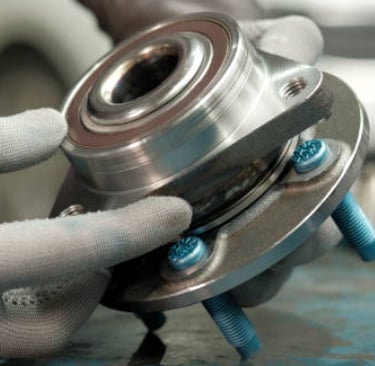Wheel Bearings on the Jamaican Roads
Wheel Bearings and Jamaican Roads: A Match Made for Maintenance
12/26/20242 min read
Navigating Jamaican roads can be an adventure. From the scenic coastal drives to the rugged rural routes, these roads test your vehicle’s durability every day. Among the parts that take a significant beating are your wheel bearings. Often overlooked, these small yet crucial components play a big role in your car's performance and safety. Here’s what you need to know about wheel bearings and why they deserve your attention, especially on Jamaican roads.
What Are Wheel Bearings?
Wheel bearings are sets of steel balls or rollers housed in a metal ring called a race. They’re located in the wheel hub and enable your wheels to spin smoothly with minimal friction. These bearings bear the weight of your vehicle and endure the constant rotational forces generated as you drive.
Why Jamaican Roads Are Tough on Wheel Bearings
Jamaican roads are as unpredictable as they are beautiful. Potholes, uneven surfaces, and frequent stop-and-go traffic can place extra stress on your wheel bearings. Here’s how these conditions contribute to wear and tear:
Potholes and Rough Roads: Every time you hit a pothole, the shock is transmitted directly to the wheel bearings. Over time, this can cause them to loosen or sustain damage.
Frequent Braking: Stop-and-go traffic in urban areas increases heat and friction, which can degrade the bearings faster.
Moisture and Dirt: Rainy weather and unpaved roads can expose wheel bearings to water and debris, leading to corrosion and contamination.
Signs of Worn Wheel Bearings
Driving on damaged wheel bearings is unsafe and can lead to costly repairs. Here are the warning signs to watch for:
Grinding or Humming Noise: A growling or humming sound from your wheels, especially when turning, often points to bearing issues.
Uneven Tire Wear: Faulty bearings can cause irregular tire wear due to misaligned wheels.
Vibration in the Steering Wheel: You might feel vibrations, particularly when driving at higher speeds.
Loose Wheels: If a wheel feels wobbly or loose, it’s a clear indicator of bearing trouble.
ABS Warning Light: Some modern vehicles will trigger the ABS light when there’s a bearing issue.
Maintaining Wheel Bearings in Jamaica
Given the challenges of Jamaican roads, proactive maintenance is essential. Here’s how to keep your wheel bearings in top shape:
Inspect Regularly: Have your bearings checked during routine servicing, especially after long drives or trips on rough terrain.
Avoid Overloading: Jamaican drivers often load their vehicles heavily for work or travel. Avoid exceeding your car’s weight limit to reduce stress on the bearings.
Seal the Deal: Ensure the seals around the bearings are intact to prevent water and debris from entering.
Drive with Care: Slow down over potholes and rough patches to minimize impact.
When to Replace Your Wheel Bearings
While wheel bearings are designed to last for tens of thousands of miles, the unique demands of Jamaican roads may necessitate earlier replacement. Don’t wait until failure is imminent. If you notice any of the signs mentioned above, consult a trusted mechanic. Replacing worn bearings promptly can save you from more extensive and expensive repairs.
Wheel bearings are the unsung heroes of your vehicle, ensuring smooth and safe rides. Jamaican roads may be hard on them, but with regular maintenance and a bit of care, you can keep your bearings in excellent condition. Whether you’re commuting in Kingston or exploring the Blue Mountains, a well-maintained vehicle will always serve you best.
Let RCJ Mobile Mechanics take care of your wheel bearing needs. We’ll come to you, ensuring your car is ready to handle whatever the roads throw at it!


